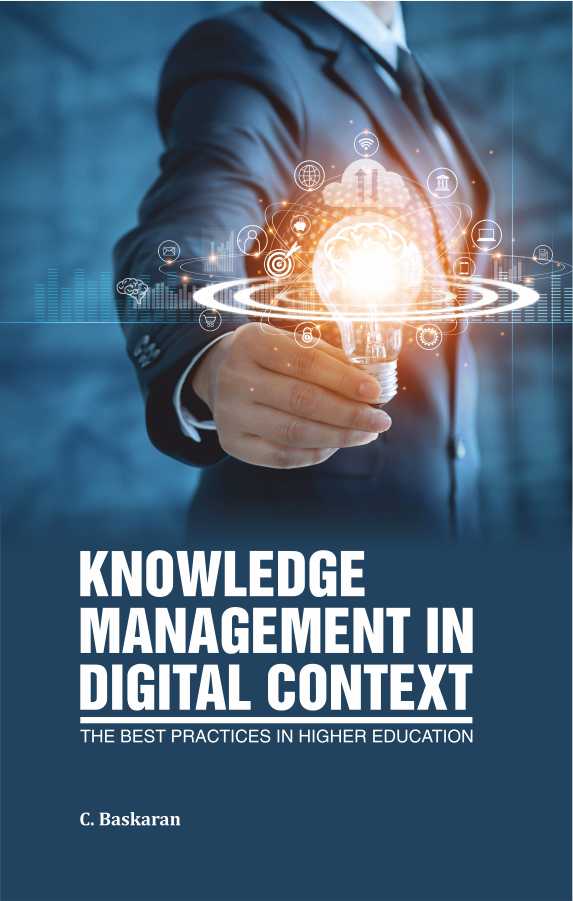This book reflects the novel ideas envisaged for knowledge management for disseminating information to cater to the needs of faculty members, scholars, and students in the higher education environment. In the present era, digital devices occupy a predominant place where scholarly content can be accessed via subscribed and non -subscribed resources, and users need to be aware of how to find information on research and academic activities. Librarians/Knowledge Mangers/ Information Scientists play a vital role in acquiring, synthesizing, processing, storing, and retrieving information from various sources of documents. In the world of higher education, knowledge management means relying on technology tools and solutions that support the storage, organization, and dissemination of information across an institution. This way, everyone can find what they need when they need it, and as long as the solution is cloud-based, they can access information from anywhere at any time.
This book explains the pivotal role that libraries play in making available multidisciplinary information on various subjects, but compiling tacit knowledge is difficult as long as it is maintained at the individual level. However, the library has done more to make this kind of knowledge available with the support of developers who use the knowledge of technology to stop the tacit knowledge generated in the organization.
Knowledge Management in Digital Context: The Best Practices in Higher Education
Author:
C. Baskaran
Rs. 1200
Additional information
| ISBN | 9789392594946 |
|---|---|
| Year of Publication | 2024 |
| Binding | Hardbound |
| Pages | 247 |
| Edition | 1st |
| Language |
Preface
1 Knowledge Management : Definition,
Concept And Knowledge WorkersÂ
2 Knowledge Management : EvolutionÂ
3 Knowledge Management and Social MediaÂ
4 Generalizations And Managerial ImplicationsÂ
5 Knowledge Regimes, Interests and AlliancesÂ
6 Knowledge Society and Higher EducationÂ
7 Quality Factors for Knowledge SharingÂ
8 Digital Knowledge ResourcesÂ
9 Knowledge Management : LeadershipÂ
10 Management As Information GatekeeperÂ
11 Knowledge Management in LibrariesÂ


